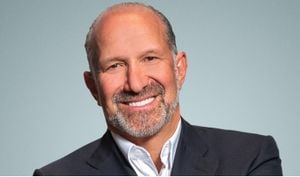Deanne Criswell, the Administrator of the Federal Emergency Management Agency (FEMA), is under increasing scrutiny following serious allegations against one of her employees. This controversy erupted during the aftermath of Hurricane Milton when it was claimed by some sources, including prominent news outlets, like the Wall Street Journal, and various investigative reports, that a FEMA employee advised disaster relief teams to avoid helping homes adorned with signs supporting former President Donald Trump. The fallout has been swift, with Criswell issuing strong statements condemning the employee's actions as "reprehensible" and "a clear violation of FEMA’s core values and principles to help people regardless of their political affiliation. ", igniting debates over political bias and equitable disaster response.
Following the incident, the employee was let go, but the damage was done. Lawmakers from multiple House committees invited Criswell to testify on November 19th about the incident and FEMA's response to recent natural disasters, including Hurricanes Helene and Milton. During her testimony before the House Transportation and Infrastructure Committee, Criswell promised to urge the inspector general to investigate what had transpired. "The IG has not yet stated they want to examine this particularly, but I strongly encourage them to take this on and determine whether this was widespread or merely the action of one rogue employee," she said.
Criswell faced intense questioning, especially from Rep. Scott Perry, who stressed the importance of accountability within government operations, particularly before upcoming elections. According to her replies, Criswell convinced the committee members of the singularity of the orders issued by the now-terminated employee, disassociately denying they were part of broader directives.
On the political front, the fallout has not been limited to FEMA. Florida's Governor Ron DeSantis has taken steps by initiating his own state-level investigation, expressing concern over federal agencies seemingly targeting Trump supporters. DeSantis accused the federal government of using Hurricane Milton as leverage against the residents of Florida who backed Trump, asserting the need for transparency and fairness.
Adding to the controversy, Florida Attorney General Ashley Moody has filed a lawsuit against Criswell and another former FEMA supervisor, claiming violations of civil rights among Florida residents due to their responses to the storms. This has heightened the urgency of discussions on how government agencies operate during emergencies, especially when political tensions are high.
Meanwhile, during the hearing, some lawmakers highlighted the pattern of biased actions from various government agencies, arguing it creates mistrust among specific populations, particularly during emergencies when community members need prompt assistance. They pointed out the significance of neutral operations from FEMA and other organizations to uphold the integrity of disaster relief efforts.
At the center of the debate is the question: how should government agencies navigate the delicate balance between political affiliations and equitable service during times of crisis? The controversy arising from Hurricane Milton's aftermath may have begun with one problematic employee's actions, but it has revealed broader discussions concerning the impartiality of governmental assistance. For many, this investigation could either usher in reforms to safeguard the principle of neutrality or exacerbate feelings of distrust among constituents.
While discussions continue to evolve, the ramifications from this incident stretch beyond the initial problem, shining light on the challenges government agencies face during natural disasters—providing help fairly and without bias with all eyes watching. The approach taken moving forward by FEMA and other agencies will determine this narrative's longevity and impact.



